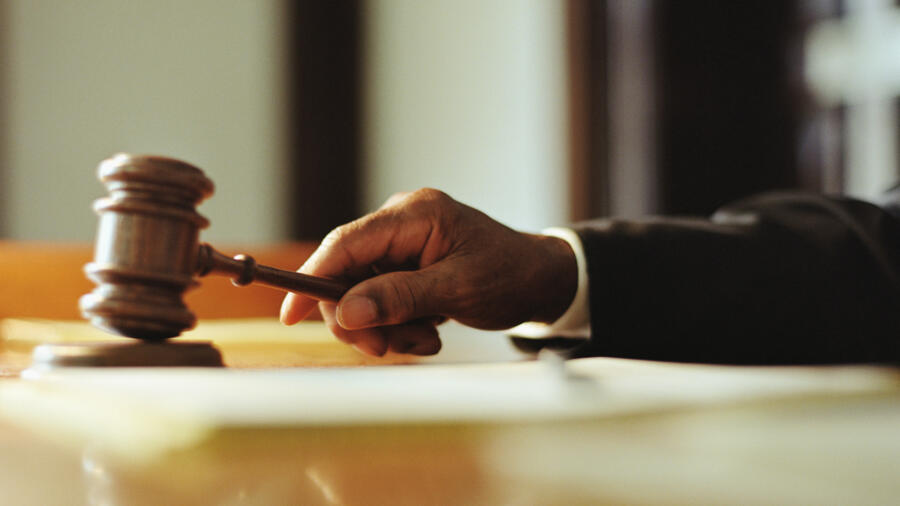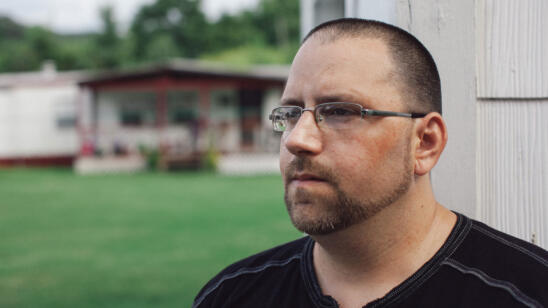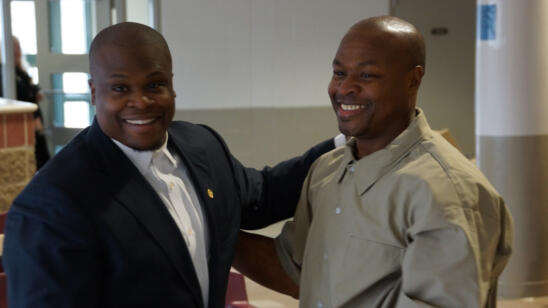What happens when someone gets a traffic ticket, but can’t take off work to fight it? Or is arrested on criminal charges and the 48-72-hour window in which they must be arraigned by law is getting smaller?
Enter: Night court.
At its essence, night court is an accommodation for people who don’t have the time or resources to attend court during the day as well as a way for courts in large cities to get through preliminary court proceedings faster.
“Usually there’s not much different about night court except for the time of the day,” Los Angeles-based defense attorney Arash Hashemi tells A&E True Crime. “The procedures and everything else [are] still the same.”
While New York City runs night courts (made famous by the 1980s TV show Night Court), dozens of other jurisdictions nationwide also hold civil or criminal court proceedings in the evening, according to the Associated Press.
[Stream episodes of Taking the Stand in the A&E App.]
Some courts, including Manhattan Night Court—which, until 2003, had sessions from 1 a.m. to 8 a.m. but currently only holds them until 1 a.m.—have seen tourists flock to them as a form of entertainment.
So what kinds of cases are usually seen during night court? A&E True Crime speaks with legal experts to give us more insights into what happens at courts when the sun goes down.
Criminal Night Court
According to Allison Mahoney, a former assistant prosecutor in the Bronx who handled cases involving human trafficking and corruption, criminal night court sessions are exclusively used for preliminary court proceedings—like arraignments, where people who have been arrested hear their charges in court and can submit their plea.
Key decisions can be made during arraignment, including whether orders of protection will be issued or if a defendant will remain in jail
And time is of the essence with all arrests.
According to Mahoney, night court assures defendants in criminal cases are arraigned within an acceptable period so as not to violate their Sixth Amendment right to a speedy trial.
“Arraignments at night are the same as arraignments during the day,” says Mahoney. “A defendant is brought in and advised of the charges against them. Then an application is made for bail or remand or [they are] released on their own recognizance. The judge decides what to do.”
In the Bronx, Mahoney worked in the “complaint room,” where she and other prosecutors received arrest reports and supporting documents during daytime or evening hours. She says they often spoke with police, and sometimes interviewed witnesses. From there, they would decide whether to file criminal charges.
Depending on backlogs, a criminal complaint that was filed later in the day could lead to an arraignment hearing in the evening.
Many of the cases handled in New York City’s night courts pertain to drug offenses, says Mahoney.
In a 2017 New York University blog post, “A Night at Night Court,” graduate student Natalie Parker gave her impressions of a visit to a night court session at New York City’s criminal court. “Ten of the 11 defendants on trial that night were ethnic minorities,” Parker wrote. “Three out of 11 were homeless. All cases but two addressed drug crimes, and all cases but one, resulted in the judge’s advancement toward prosecution.”
According to a Pew Research Center study released in 2022, more than a million drug-related arrests were made every year from 2009 to 2019 and, as a result, criminal courts in some states now hold night court sessions specifically for drug offenses. The Bureau of Justice Assistance found that night court in Cook County, Illinois “cut processing time for narcotics cases dramatically.”
Though the study also noted that night court resulted in more lenient sentences and fewer trials, Mahoney points out a potential issue with busier criminal night courts: finding an attorney to represent you at night.
“I think night court was created not for the benefit of the lawyers necessarily, but the benefit of the defendant themselves, because some people don’t hire lawyers for traffic citations [as they would with criminal cases],” Mahoney tells A&E True Crime.
Traffic and Civil Night Court
Every year, billions of dollars in “financial penalties”—such as parking or traffic tickets or court-imposed administration fees—are imposed on the public, according to United States Census Bureau data. In fact, in 2019, state and local governments collected $16 billion from these fees.
In a 2021 article, the New York Times reported that 730 municipalities in the U.S., including big cities and small towns, rely on traffic fines or fees for 10 percent of their revenue.
California is one of the few states that has night court hearings for traffic matters for people whose work schedules prevent them from fighting their tickets during the day.
Hashemi serves as a temporary judge for traffic matters in Los Angeles County, where select courthouses have night court two to three days a week. These hearings can be held several nights a week depending on the size of the county.
“If you want night court, you would have to do it on a date that is available and in the courthouse that’s available,” Hashemi says. “If your citation is in a courthouse that doesn’t have night court, you would need to have it transferred [to a courthouse that does].”
Courthouses in Los Angeles County allow defendants to electronically request an a.m. or p.m. court hearing. Hashemi estimates that 10 percent of his cases were handled at night.
“You wouldn’t prepare for [night court hearings] differently procedurally, you would just prepare for them logistically,” Hashemi says. “How are you going to get to court? How long would it take you if it was at night versus the day? Procedurally nothing changes, everything stays the same.”
Additionally, California and New York have civil court hearings at night. In Manhattan, evening small claims court sessions run from 6 p.m. to midnight. In Nassau County, on Long Island, claimants who have their case handled at night get the unique opportunity to choose a judge or arbitrator to decide their fate.
How Did Covid Affect Night Court?
The coronavirus pandemic posed a large challenge to courts all over the country, including the abrupt transition to virtual hearings caused by the suspension of in-person hearings.
Hashemi says that Los Angeles County courts implemented video technology that allowed various hearings to take place remotely.
“The court website set up a way to schedule night court and appear remotely. So, you can attend from your house or wherever you are,” Hashemi says.
Other cities are considering incorporating night courts to tackle the backlog caused by the pandemic.
In February 2022, officials in Milwaukee announced plans to introduce evening court hearings to address the 1,700 criminal and 3,000 misdemeanor cases that have been delayed. According to WISN, the backlog is reportedly expected to take a year and a half before it’s fully handled.
“Everything is sort of all hands on deck trying to figure out creative ways to resolve some of these cases,” Milwaukee County Circuit Court Chief Judge Mary Triggiano told news station WISN. “Time is of the essence, and we understand that in terms of trying to attack this backlog aggressively.”
Related Features:
Does Crime Really Go Up in Hot Weather?
Odds Are High You’ve Been the Victim of a Crime—Here’s What One Trauma Expert Says It Takes to Heal


